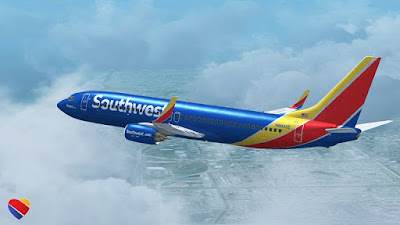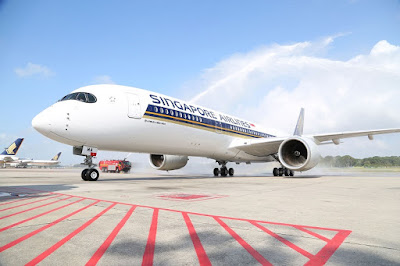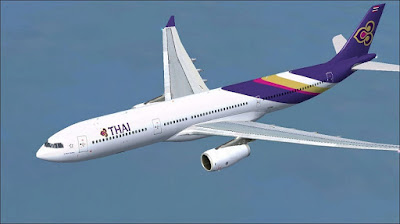The Airline Business is the most
competitive and toughest business on Earth. The industry requires a lot of Hard
work, effort and Money. it is such a tough
Business, very few get it right. The Aviation Industry connects People, Culture
and Countries together. Hence, it is important to get it right. Many of us
don’t realise what goes through in completing a Flight. It may be a few hours
journey for us, but involves many painstaking tasks. In the past, we have seen
many Airline companies shutting down or going Bankrupt. They all had different
reasons and circumstances. On the other hand, there are some Airline companies
which are running for decades. What is the difference? In this Blog, we will discuss in detail what
makes an Airline successful. This will be a long and detailed Blog as we want
you to know each and every aspect of Aviation. Let’s get started…….
1. Type of Airline: The first thing is to decide what sort of
Airline you should have. You can have a Normal Carrier with Premium facility,
or a Low-Cost Carrier with No Premium services. If you are focussing on
Domestic and short routes, go for a Low-Cost Carrier(LCC). If you are serving
Long Haul &International Routes, have a Normal Carrier. The decision may
depend on opportunities in the Domestic and International Market. Example:
Emirates started off as a Normal Carrier as it had to serve International
Routes more than the Domestic ones. On the other hand, Indigo started off as a Low-Cost
Carrier as it had more Domestic Routes.
2. Money: Once the Type of Airline
has been decided, it is important to check Funds available. Some Airline
companies started off by taking huge Loans, and then turned Bankrupt eating
away all the Money. Airline companies should make sure that it has sufficient
funds for operations. As an estimate, a Low-Cost Carrier requires at least 10
Billion Dollars to start off. This includes Cost of Planes, Offices, Systems,
Ground staff, Pilots, Training, Crew, etc. To start a Normal Carrier, a company
requires at least 30 Billion Dollars. An Airline must be started only when it
has these Funds. Example: Kingfisher Airlines was started off in 2004 with the
help of huge Bank funding. The Airline struggled and closed down in 2012 eating
away all the Money.
3. Government Support: A good
Government support is very important. Sometimes, a lack of government support
hampers the Airline forcing it to shut down. Government support may include
Open Skies Agreements, Airport Clearances, Permissions to use Air Space, Documentations,
Low Taxes, Fuel surcharges, etc. All these factors are under Government control.
A Good support can help the Airline thrive.
4. Airport Infrastructure: The Infrastructure at the Airport you are
flying from is very important. It should be convenient for passengers to
Navigate around the place. All major amenities must be available for
passengers. A good airport experience will encourage passengers to come again
and fly with the Airline. Also, the external Infrastructure must be good. This
includes regular Bus, Metro and Roads to the Airport from the city.
5. Type of Aircrafts: This is one of the most important things that
an Airline should make sure. Depending on your type of service, decide which
Planes to have in the fleet. A Low-Cost Carrier must have only one type of
Aircraft, either Boeing B737s or Airbus A320s. This reduces the cost of Pilots and
crew Training dramatically. If you are operating Long Haul and International
Routes, 2-3 types of Aircraft are enough. For a Long-Haul operator, A350s,
A380s, A330s, B777s and B787s are good. These are the latest most efficient
jets. Just select 2 or 3 from them depending on Routes and Traffic. Emirates
Airline is a Normal Long Haul International Carrier. It has only Boeing B777s
and Airbus A380s in their fleet. This reduces their cost for training Pilots,
Crew and Ground staff for different Airliners.
6. Fuel Negotiations: One of the
biggest expenditures in Flight is fuel. An Airline company must have good
negotiating powers with Oil Companies. The Price of Oil changes daily, hence it’s
important to negotiate well. Low Fuel Cost
will help the Airline in earning Profits and offering cheap tickets.
7. Airport Parking Charges: Another thing which require Negotiation is
Parking Charges. A Low-Cost Carrier must always prefer small Airports. On the
other hand, Normal Carriers serve big Airports. While Negotiating with Parking
charges, consider the facilities and Infrastructure at the Airport. Example:
All LCCs land at London Gatwick, while all Major carriers land at London
Heathrow.
8. Catering: Tie Up with the best
Caterers at the best price. Catering is an important part of flight, especially
Long Haul. Have regular quality checks and negotiate with the price. Also, make
sure caterers are available on time. They should not delay the flight. A one
minute delay can lead to missing of take-off slot, having a knock-on effect.
9. Cleaning staff: Usually LCCs
don’t have regular cleaners. On the other hand, big carriers clean after every
flight. They should be good enough to clean up the plane in time. Some Airlines
have 90 minutes turnaround time; hence time is important.
10. Ground staff: The Ground Crew
must be very efficient and punctual, as it depends on them whether the flight
will leave in time or not. Have a limited number of ground crew. Too many will
increase costs. For example: The person at check-in can also take care of
Boarding. If you have connecting
passengers, make sure the ground crew transfers the Bags quickly. All airlines
have different Ground Crew. It’s up to them how they differ from others.
11. Cabin Crew: Cabin Crew are the
most important employees of an Airline. They are not only responsible for
serving Hot Meals, but also for passenger security. They should undergo hard
training programmes to provide safety to the passengers. The Training Programs
must be of International standards and according to FAA regulations. The crew
must be offered decent Perks. Sometimes Airlines offer them too luxurious perks
which increase their costs. Also, Pilots must be trained on state of the art Flight simulators so that they can
cope with any situation.
12. Working Hours: Make sure that
your crew has Normal Working Hours. They should not be stressed with Long Hours
and unusual timings. No doubt, flights can leave at any time, but that doesn’t
mean they don’t get sufficient rest. Some Airlines overburden their crew,
resulting in lack of their concentration. In the past, there have been
incidents because of Pilot & crew fatigue.
13. Efficient Routing: Plan your
Routes efficiently. Your routes to all your destinations must be based on Weather,
Passenger Demand, Cost of Airspace, Wind Conditions, etc. These factors change
daily. Hence, it’s important that these are regularly updated. Allocation of
Aircrafts is also important. If flying an A350 to a destination is enough,
don’t fly an A380. If a destination has two B777 services one after the other,
replace them with an A380 service. Passenger demand and Economics are
important.
14. Cabin Seating: Cabin seating
must depend on demand. If there is no demand for First Class seats, replace
with more Business class ones. If you are running a LCC, don’t have
Entertainment systems, Fancy Packets, Earpieces, Reclining Seats, etc. It
increases cost. Facilities must be provided according to demand.
15. Safety Standards: Airline Safety
is of utmost importance. The safest Airlines are only the ones which are
Profitable. Safety standards should be of International level, and according to
FAA regulations. Do whatever it takes to keep your passengers safe. A single
crash is a big disaster for Airline Balance sheet. People still remember how
Malaysia Airlines was shattered after the two plane disasters in 2014. It took
them a lot of effort to regain back the same safety status. Also, make sure
that the Airports you are flying into have advanced safety instruments like
Ground Radars, Navigation systems, etc. Sometimes a faulty Airport instrument
causes a crash.
16. Maintenance: Another important
aspect of safety is maintenance of your fleet. Make sure all Aircrafts go
through regular Maintenance and safety checks. A small maintenance facility
should be built having spares of all the types of Aircraft in operation. Even
the slightest dents must be examined and fixed. Spare parts must be available
at all times to save money and avoid delays.
17. Check-in and Boarding: Check-in
and Boarding procedures must be quick and efficient. Any delays will have a knock-on
effect on the entire operations. Don’t hesitate in leaving behind lazy
passengers. Southwest Airlines has a First Come First Serve seating system. This
makes the passengers reach the Boarding Gate early, avoiding delays.
18. Strong IT System: Recently,
British Airways suffered a computer Breakdown leading to massive flight
disruptions. It was a PR disaster for BA. An Airline must make sure that its IT
Infrastructure is strong enough to process Tickets, Bookings, Flights,
Check-ins, Baggage, etc. Computers are the backbone of their operation. Also,
it should be strong enough to cope with Cyber Attacks.
19. Punctuality: Save Time wherever
possible. Time is Money in Aviation. Every second counts. A second can lead to
massive disruptions. There have been cases of Planes missing their take-off
slots due to one minute of delay. Punctuality also gives you room to
accommodate more flights in your full day schedule.
20. Save and Earn Money: Airlines
not only earn money from tickets. They can also earn from sale of Food items on
board, sale of Duty Free items, Collaborations with sporting events, selling
Ads on their website, collaborations with other Airlines and promoting other
Brands. An Airline should keep all its options open. Lastly, save money
wherever possible. Don’t waste a single penny.
These were the ways in which you
can make an Airline Profitable. If we have forgotten something, comment down
below. As this is our longest blog till date, we would love to have you involved
in this conversation. Tell us in comments about your views and feedback to this
Blog…….
For Notifications on our New
Blogs, join our Facebook Page: www.facebook.com/360travellers










No comments:
Post a Comment